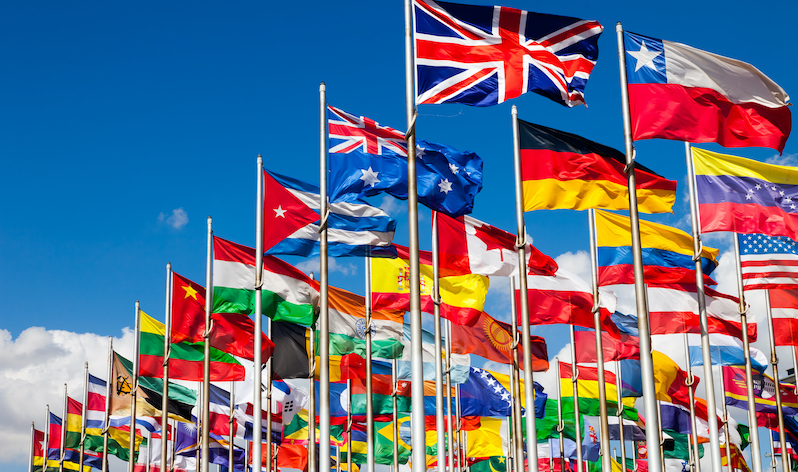
New OECD recommendation seeks to improve regulatory cooperation across countries.
Across the globe, national authorities increasingly face regulatory challenges that are harder to solve unilaterally. Some issues—such as carbon emissions, taxation rules, and international mergers—urgently require concerted action because their impacts transcend borders. Other issues—such as managing chemical hazards—concern mostly domestic impacts, but without international cooperation, the cost of tackling them is prohibitive.
International regulatory cooperation offers a set of tools for domestic governments to leverage international expertise to tackle transboundary and global issues.
For decades, central governments and independent regulators have collaborated in several ways, including regulatory partnerships, recognition of international standards, and mutual recognition agreements. There has been, however, a lack of discipline in embedding international regulatory cooperation horizontally and throughout the life of regulations from policy design to enforcement and ex post evaluation.
To facilitate international regulatory cooperation, the Organization for Economic Cooperation and Development’s (OECD) Ministerial Council recently adopted a recommendation to set a pathway for national governments to work together effectively on regulatory issues.
This recent recommendation supplements a 2012 OECD recommendation that outlined key principles to improve regulatory quality, such as regulatory impact assessment, multilevel coordination, transparency, and engagement. That prior recommendation also recognized, even a decade ago, that countries should “give consideration to all relevant international standards and frameworks for cooperation in the same field and, where appropriate, their likely effects on parties outside the jurisdiction.”
The 2022 recommendation calls for national governments to take three further steps to facilitate international regulatory cooperation.
First, the Council recommends that governments take a “whole of government” approach to international regulatory cooperation. Most regulatory cooperation efforts are decentralized initiatives of individual government agencies that have different levels of knowledge and resources to consider potential avenues for international cooperation. The recommendation calls for a holistic governance structure, backed by political leadership that coordinates activities to build a common understanding of international regulatory cooperation within each country.
Second, the Council advocates “recognizing international regulatory cooperation throughout domestic rulemaking.” This action item calls on domestic regulators to consider international regulatory cooperation during all policy development stages. When assessing international instruments to design regulation, or taking into account economic, social, and environmental impacts beyond jurisdictions, governments should consider international regulatory cooperation in all corners of policy activities.
Lastly, the Council recommends that international regulatory cooperation take place in all types of forums, whether bilateral, multilateral, or plurilateral. The goal should be to engage proactively in activities related to international regulatory cooperation. Whether by promoting good practices and innovation in regulatory policy, or collaborating in a variety of international fora, governments benefit from building trust and stronger technical relationships with international peers.
Echoing the recent OECD recommendation are a set of consolidated best practices on international regulatory cooperation that the OECD previously developed and which offer more practical guidance for governments to put principles into practice. These best practice guidelines also outline the benefits that international regulatory cooperation brings to national authorities, including economic efficiency, regulatory effectiveness in addressing challenges with international impacts, and administrative efficiency resulting from countries pooling intelligence and resources.
To understand the scope of international regulatory cooperation among OECD members, the OECD Regulatory Policy Outlook 2021 included indicators that measure specific aspects named in the three parts of the recent recommendation on international regulatory cooperation.
The Outlook shows that international regulatory cooperation is still a pending task in most countries’ better-regulation agendas. At the highest level, only six out of 39 countries plus the European Union have an explicit whole-of-government policy on international regulatory cooperation. Without this well-defined, transversal policy, it is difficult to have a coherent, high-quality practice of international regulatory cooperation among ministries.
The Outlook cites Canada’s Cabinet Directive on Regulation as an example of a good practice. This directive requires regulators to assess opportunities for cooperation with other domestic and international jurisdictions to reduce unnecessary regulatory burdens on Canadian businesses while protecting the health, safety, security, environment, and social and economic well-being of Canadians.
Not all the Outlook’s results were bad news. As for the second pillar—embedding international regulatory cooperation through domestic rulemaking—there was clear progress from OECD member countries. In 2017, only nine countries had a formal requirement to consider binding international instruments during rulemaking; four countries had to consider international standards; and eight countries had to consider other international instruments. In 2020, the numbers increased to 18, 11, and 15, respectively.
Nevertheless, virtually all OECD members have progress to make to ensure effective and systematic efforts at international regulatory cooperation in their country. Furthermore, there remains a gap in practical resources for policy makers to conduct international regulatory cooperation. Nineteen countries lack guidance to support regulators’ consideration of international instruments, and 20 countries do not have databases of international instruments to facilitate their consideration.
A number of countries have good practices in this area. For instance, Estonia introduced a requirement to consider international best practices during the process of drafting legislative proposals. Mexico established a section in its regulatory impact assessment template to assess impacts on foreign trade.
Countries are adopting international regulatory cooperation slower than other mechanisms for better regulation so there is a further need to build a strategic, whole-of-government policy that would trickle down to improve different aspects of international cooperation. The recent international regulatory cooperation strategy developed by the United Kingdom demonstrates the importance of this approach. This strategy includes practical aspects, such as improving coordination among national regulators and capacity building for public officials.
Economic interconnectedness is increasing at a faster pace and governments have never had so much technology infrastructure to coordinate better. Still, their policies are still largely fragmented. Countries must proceed by designing appropriate regulatory frameworks to enable regulatory cooperation to foster better alignment and prevent citizens and businesses from paying the costs of regulation behind borders. Hopefully, the recent OECD recommendation on international regulatory cooperation will pave the way to do so.





